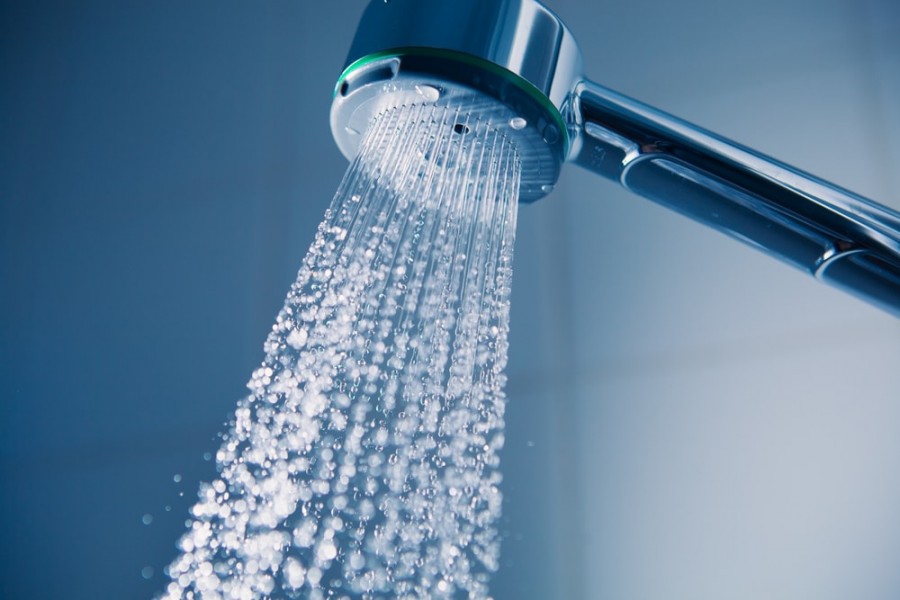
Published :
Updated :

Whenever winter comes, a common debate that occurs in households is whether to shower in hot or cold water.
A regular shower is important to maintain a healthy lifestyle. American Academy of Dermatology (AAD) recommends having a 5-10 minutes shower every day.
But what should be the temperature of the water for that? Should it be cold or hot? Studies show that both types of showers have important health benefits and detrimental effects too.
Cold shower
Granted it is not a pleasant experience during the winter, but there are certain good things that can come out of it.
Researchers at a University in Karnataka, India, for example, found that a cold shower helps to decrease inflammation and swelling. They can also relax and repair muscles, especially after a tough workout session.
One meta-analysis revealed that exposure to cold water is one of the best approaches to reduce muscle fatigue and inflammation. It can also help lessen pain.
Dr Carrie Kovarik, associate professor of Dermatology at the Hospital of the University of Pennsylvania, said that a cold shower helps overcome the feeling of itch and makes the skin calm.
It may also have a weight loss effect by causing fat cells to burn more. A cold shower can improve skin appearance too. As cold water constricts and tightens the blood flow, it may give the skin a healthy glow. The impact of cold water may also be seen on your hair, which is likely to become stronger and healthier over time.
Researchers from Charles University, Prague, Czech Republic, found out that regular exposure to cold water can increase metabolism and several other important hormones, and can lower stress hormone or cortisol.
So what’s the downside? For one, a cold shower is not a particularly great idea if someone is already cold, or is sick.
Hot shower
Indian researchers showed that it can improve cardiovascular health. In China, one group of scientists demonstrated the effect of cold water on lowering blood pressure by making the arteries less stiff.
Hot showers also improve blood flow, thus relaxing stiff joints and muscles.
Brain health is another aspect of a hot shower. Japanese investigators found that exposure to hot water can promote the growth, maturation, and maintenance of nerve cells in the brain and enhance human learning and memory.
There is also a demonstrated positive impact on sleep. Japanese studies showed that a 20 minutes hot shower before going to bed significantly improves sleep.
A hot shower may improve sleep quality due to the combination of how the body relaxes while bathing and the fall in body temperature afterwards. Taking a hot shower can also be a good way to help clear a stuffy nose if you are suffering from a cold.
Well, hot water has its demerit points too. It causes disruption to the most outer layer of our skin cells, thus creating dry skin and preventing the cells from locking in moisture.
This can lead to itching and irritation. A hot shower may also worsen some skin conditions, e.g. eczema. Another thing hot water exposure can do is raise blood pressure. So people with high blood pressure may not be suitable candidates for a hot shower.
Bottom line
So what should we do? It may depend on the situation. Certain conditions like intense exercise need a cold shower afterwards.
In summer, a cold shower can help us cool off and get some relief from the heat. Hot showers can be beneficial an hour or two before sleep and during sickness.
As a rule of thumb, the ideal temperature of water for a shower is lukewarm, not too hot and not too cold.
Dr Carrie Kovarik recommends a warm shower — around 95°F to 99°F (35°-37°C) as the best option.
An alternative approach is recommended by Dr Sebastian Kneipp. This is called a contrast shower. The process is to immerse the body in cold water for a minute and then change it to hot water for another minute. This cycle is repeated 3-5 times.
Imtiaz Ahmed completed his MBBS from Dhaka Medical College.
imtiazdmc@gmail.com


 For all latest news, follow The Financial Express Google News channel.
For all latest news, follow The Financial Express Google News channel.